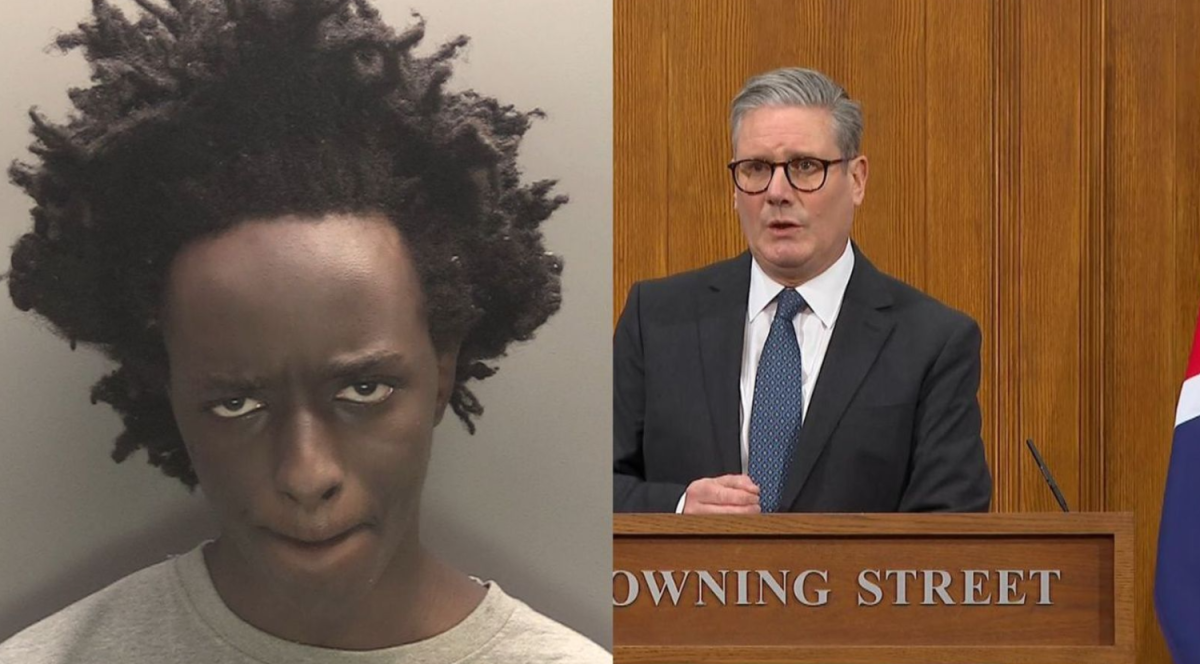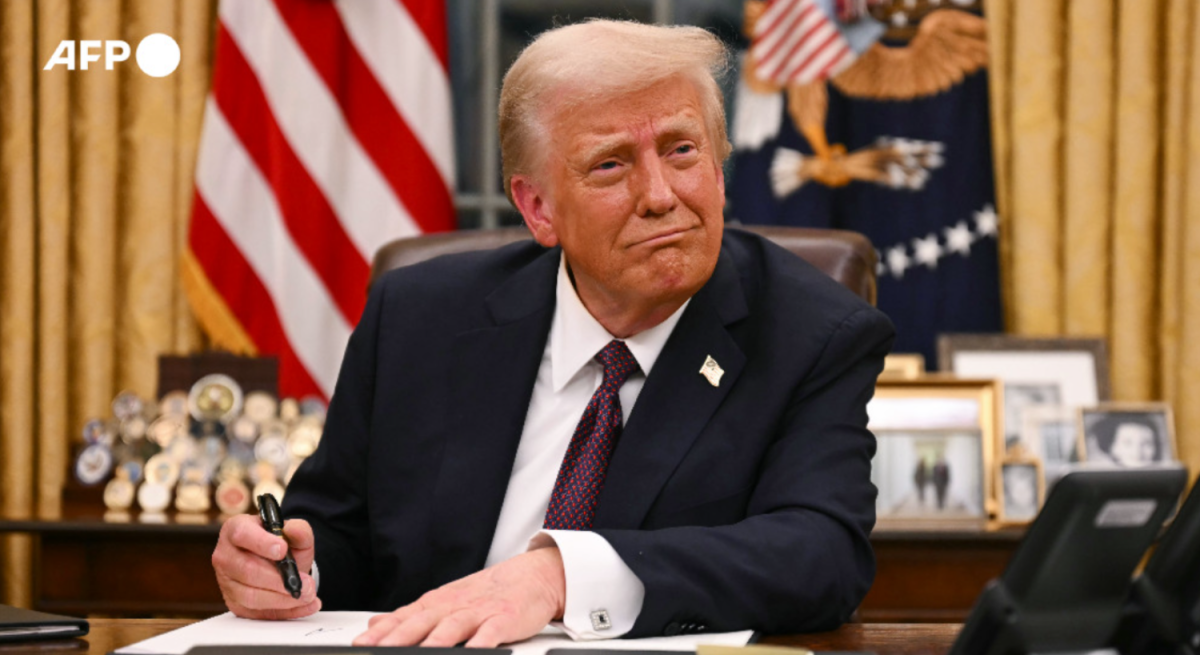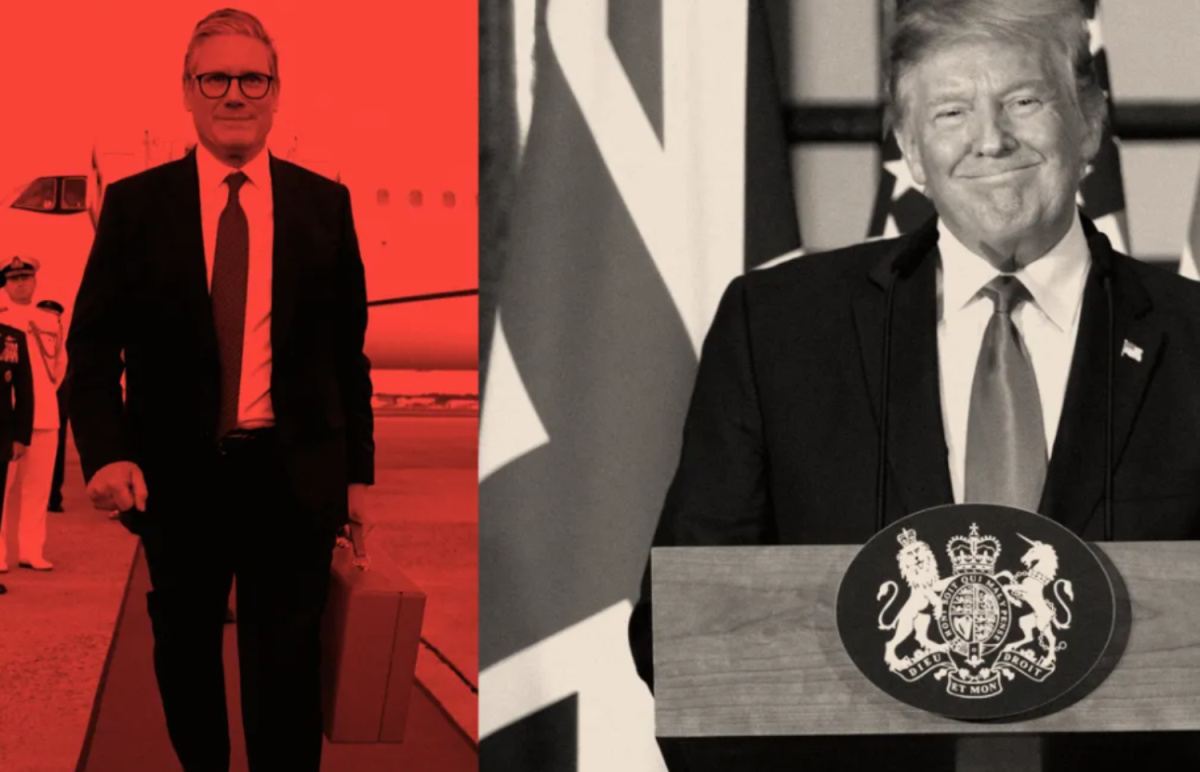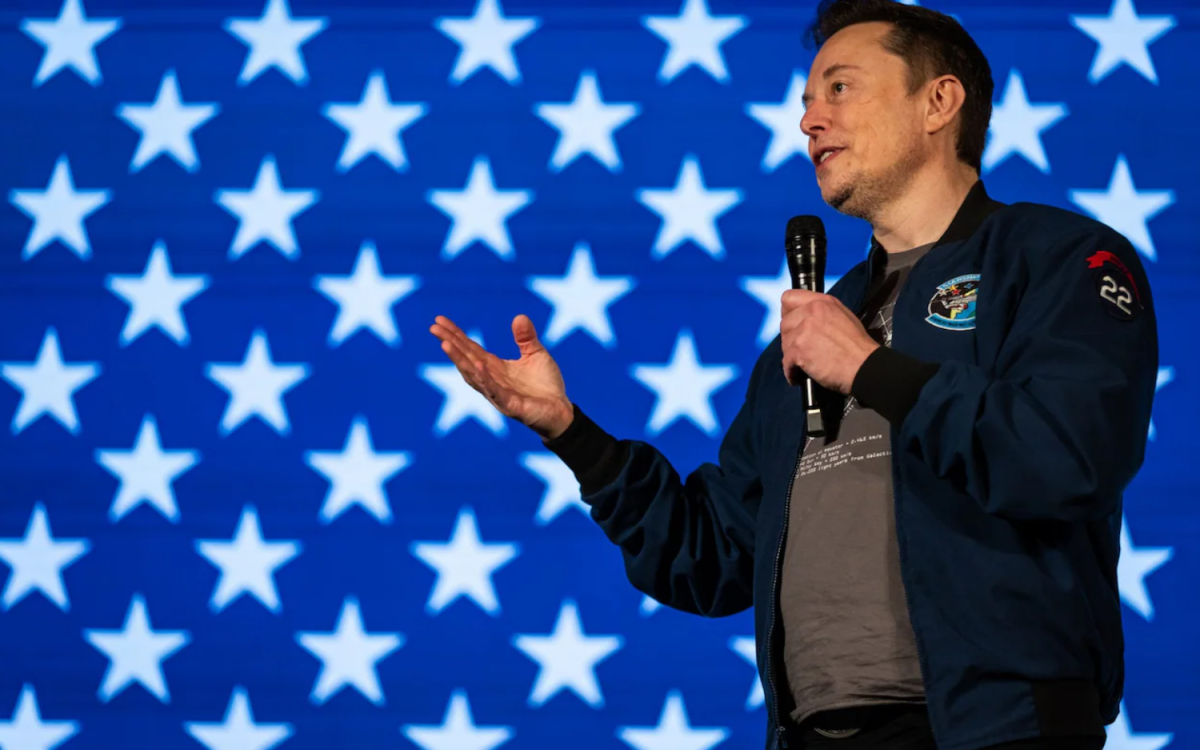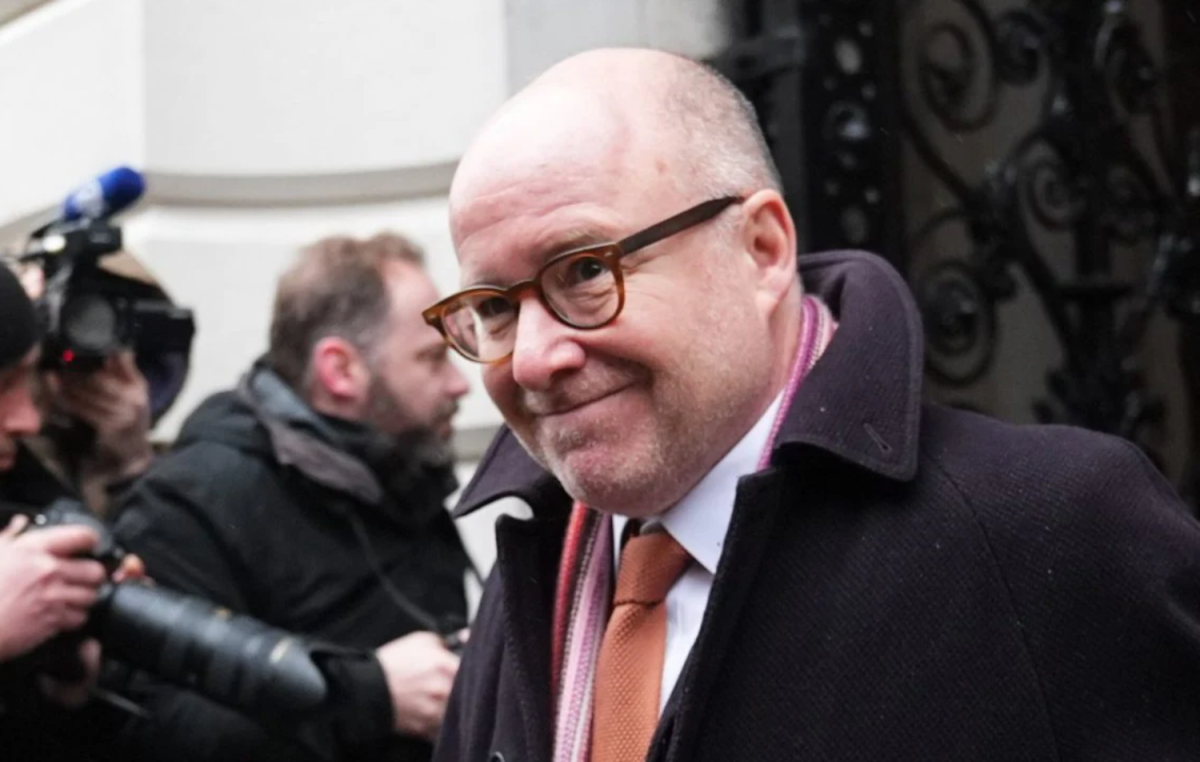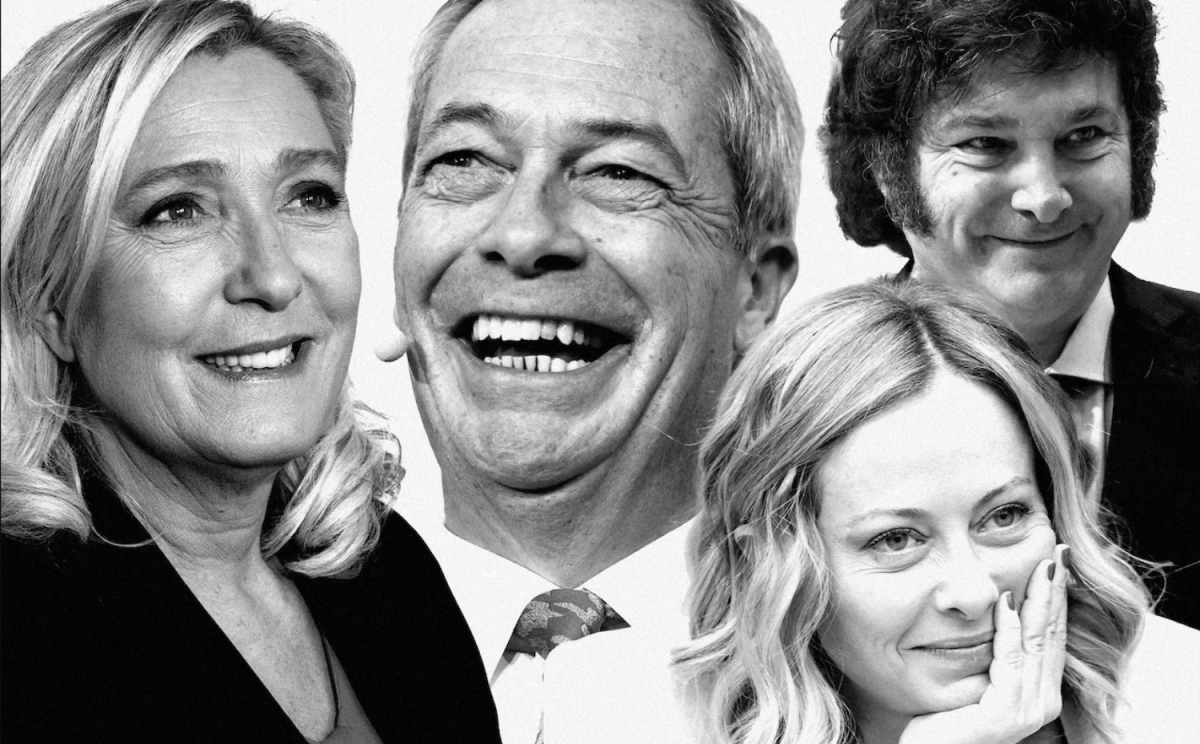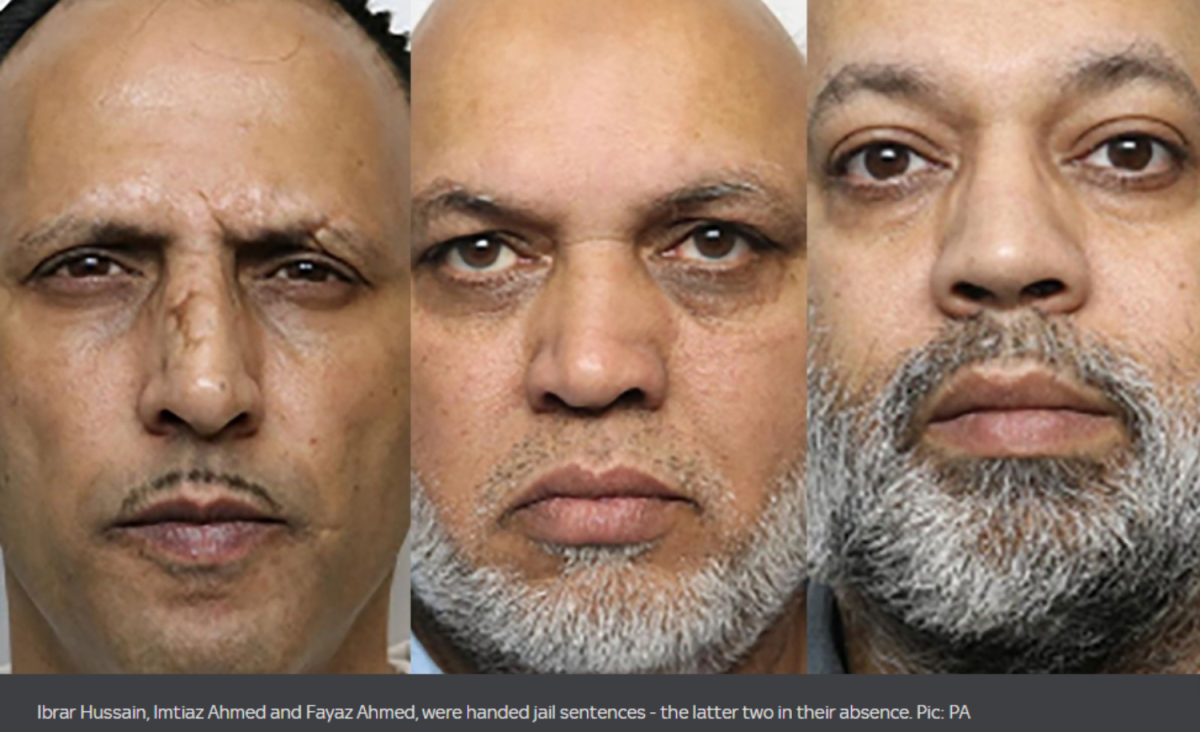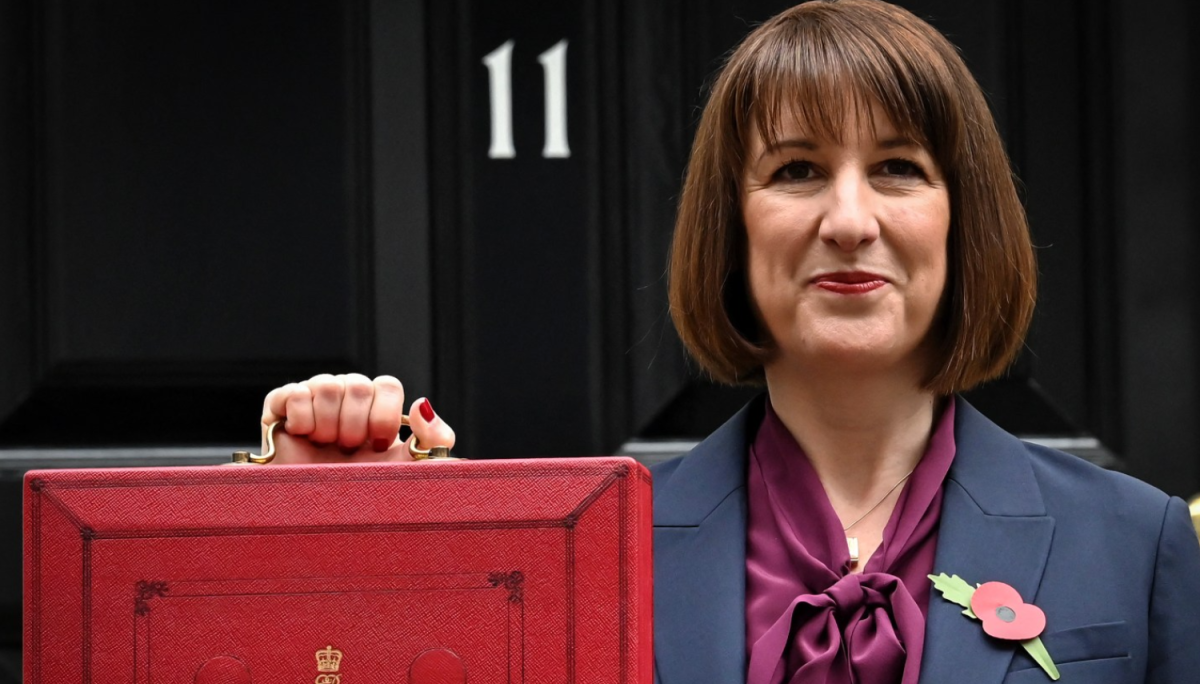-
Posts
10,699 -
Joined
-
Last visited
Content Type
Events
Forums
Downloads
Quizzes
Gallery
Blogs
Everything posted by Social Media
-
A New Era of Terrorism: Southport Knife Attack Signals an Evolving Threat, Says Prime Minister. Axel Rudakubana, in a surprising courtroom twist, admitted to the murder of three young girls in Southport last summer, even before his trial officially began. This shocking development has prompted the government to reassess the nation's "entire counterterrorism system," as announced by Prime Minister Sir Keir Starmer. Sir Keir emphasized that modern attackers are becoming increasingly difficult to detect. He stated, "We have to be ready to face every threat. If the law needs to change to recognize this new and dangerous threat, then we will change it, and quickly." His remarks highlight the urgency of protecting children from the growing influence of online violence, which he described as a "tidal wave." The Prime Minister also pointed to the need for greater accountability within Whitehall and Westminster, criticizing the current system for its slow reaction to tragedies unless spurred by public outcry or persistent campaigning. "Time and again we see this pattern, and people are right to be angry about it. I'm angry about it. Southport must be a line in the sand, but nothing will be off the table in this inquiry. Nothing," Sir Keir declared, ensuring that substantial changes would follow. During a press conference, when asked if he had withheld information about the Southport case, Sir Keir confirmed that he was aware of details about the attacker, Axel Rudakubana, as they unfolded. However, he defended his decision to keep them confidential, stating, "There has been a failure here, and I do not intend to let any institution of the state deflect from their failures. The only losers if the details had been disclosed would be the victims and the families because it runs the risk the trial would collapse. I'm never going to do that because they deserve that justice." Sir Keir stressed that his actions were not only his personal choice but also aligned with the law. He reiterated the government's commitment to swiftly amend the law if necessary to address this evolving threat and announced a comprehensive review of the counter-extremism system. Rudakubana’s case revealed that he had been referred to the Prevent scheme three times in the 17 months leading up to the attack due to concerns about his obsession with violence. However, it was determined that he did not require intervention. In light of this, Sir Keir called for an inquiry, recognizing the emergence of "a new cohort, a new different threat, this individualised extreme violence." He concluded by assuring the public that the government would act immediately to implement changes, even before the inquiry's findings were available, emphasizing the urgency of protecting children and preventing further tragedies. "We need to get on with the change in the meantime and to reassure the public that every step has been taken to protect their children," he affirmed. This case serves as a grim reminder that the nature of terrorism is shifting, demanding a more proactive and adaptable approach to safeguarding the nation. https://www.gov.uk/government/news/pm-statement-on-the-southport-public-inquiry-21-january-2025 Based on a report by Sky News 2025-01-22
-
In his executive order calling for the U.S. to withdraw from the WHO, Trump reiterated the same issues he raised in 2020: the WHO’s “mishandling” of the Covid-19 pandemic, “its failure to adopt urgently needed reforms, and its inability to demonstrate independence from the inappropriate political influence of WHO member states.” He also said the WHO demand an unfair level of payments from the U.S., relative to other nations’ contributions. Tom Bollyky, director of global health for the Council on Foreign Relation, called the move “an enormous mistake,” in an interview ahead of Trump’s inauguration. “Americans have been made less safe by the president’s action today,” said Bollyky. He said the WHO plays “an irreplaceable role” in global outbreak response, and its ability to carry through with that role in future crises will be undermined by the U.S. move. Bollyky and others hope the move to withdraw may turn out to be a bargaining chip aimed at forcing reform of the WHO — reforms that would rebalance the financial contributions made by member states, institute more transparency in how monies are spent, and put pressure on China to divulge what it knows about the origins of the Covid-19 pandemic. Should the United States follow through on the threat to withdraw, it would mark the first time since the WHO came into being in 1948 that a member state has left the United Nation’s health organization. The WHO’s constitution does not even anticipate such an eventuality; there is no provision in it for countries to revoke their membership in the organization. But the joint resolution of Congress that allowed the U.S. to join the WHO at its founding does spell out the terms by which it can leave. The country must give a one-year notice and pay any outstanding bills before it can quit the organization. Lawrence Gostin, a professor of global health law at the O’Neill Institute, part of the Georgetown University Law Center, told STAT a U.S. withdrawal from the WHO would be “a grave strategic mistake.” Based on a report by Bloomberg 2025-01-21
-
President Donald Trump’s second inaugural address laid out his vision for the country, underscoring themes of economic revival, cultural pride, and national security. As he addressed the nation, Trump made bold promises and revisited the core issues that have defined his political career. "The golden age of America begins right now," Trump declared, striking an optimistic tone. He pledged that the nation would "flourish" and become "the envy of the world," emphasizing his determination to ensure that the United States "will not be taken advantage of." During his campaign, Trump championed protectionist trade policies, expanded domestic energy production, and stricter immigration enforcement. In his speech, he reaffirmed these priorities, promising to sign a "series of executive orders" focused on immigration and the economy. He announced plans to declare a "national emergency at our southern border," aiming to halt immigration and deport "criminal immigrants" on an unprecedented scale. "We will do it at a level nobody has ever seen before," Trump asserted. Trump also highlighted his intention to address energy policies, vowing to declare a "national energy emergency," rescind the Green New Deal, and abolish the electric vehicle mandate. He proposed the creation of an "External Revenue Service" to impose tariffs on foreign goods, arguing that these measures would help build American prosperity. Yet, Trump acknowledged the challenge of lowering prices, an issue consistently ranked among Americans’ top concerns. "My top priority will be to create a nation that is proud, prosperous, and free," he stated. Trump also emphasized cultural and social issues, which have long energized his base. He reiterated his stance on gender identity, declaring that U.S. policy would recognize only "male and female," a position that reignited debates surrounding LGBTQ+ rights during the 2024 campaign. Trump’s rhetoric extended to promises of political retribution. "The scales of justice will be rebalanced," he vowed, pledging to end the "weaponization" of government institutions. This theme carried particular resonance given Trump’s legal challenges, including charges in multiple criminal cases involving business fraud, classified documents, and false claims about the 2020 election. In an appeal to minority communities, Trump acknowledged his growing support among Black and Latino voters, particularly men. "To the Black and Hispanic communities, thank you for the trust and love you gave to me," he said. "We set records, and I will not forget it." Trump pointed to his inauguration coinciding with Martin Luther King Jr. Day, promising, "We will strive to make his dream a reality. We will make his dream come true." Trump’s address was not without controversy. He proposed renaming the Gulf of Mexico the Gulf of America and reverting Mt. Denali in Alaska back to Mt. McKinley, as well as regaining control of the Panama Canal. These suggestions elicited visible reactions from figures like Hillary Clinton, who was seen shaking her head and laughing. As Trump concluded, he reflected on his personal journey, referencing an assassination attempt during his campaign. "They tried to take my freedom and, indeed, to take my life," he said. "I felt my life was saved for a reason. I was saved by God to make America great again." While Trump painted his legacy as that of a "peacemaker and unifier," his agenda remains polarizing. Public opinion is divided on issues like mass deportations and tariffs, and skepticism persists about his broader vision. Nevertheless, Trump’s address reinforced his commitment to reshaping America in line with his bold vision for the future. Based on a report by NPR 2025-01-21
-
Former Labour leader Jeremy Corbyn and his former shadow chancellor John McDonnell have been interviewed under caution by police after attending a pro-Palestine rally in central London. The rally, organized by the Palestine Solidarity Campaign (PSC), took place on Saturday and resulted in 77 arrests, marking the highest number across more than 20 PSC protests since October 2023. Police alleged that demonstrators broke through a police line during the march from Whitehall to Trafalgar Square. Among those accused of this were Corbyn, 75, the MP for Islington North, and McDonnell, 73, the MP for Hayes and Harlington. The Metropolitan Police announced that the two, along with another individual aged 61, voluntarily attended a central London police station on Sunday to be interviewed under caution. "London right now. Even after a ceasefire, Hamas supporters continue to march. They became particularly violent after being denied permission to protest in front of Central Synagogue on Shabbat, where hundreds of worshippers would be inside." Corbyn disputed this characterization in a post on X (formerly Twitter), stating, "This is not an accurate description of events at all. I was part of a delegation of speakers who wished to peacefully carry and lay flowers in memory of children in Gaza who had been killed. This was facilitated by the police. We did not force our way through." As of Sunday, 24 individuals arrested during the rally had been bailed, while 48 remained in custody. Among those charged with public order offenses were Chris Nineham, a chief steward of the march, and Piers Corbyn, Jeremy Corbyn’s brother. The nine individuals charged are due to appear at Westminster Magistrates’ Court in the coming days. Those facing charges include Angela Zelter, 73, from Heyton, Powys; Tessa Roe-Stanton, 20, from Breakspears Road SE4; Monday Rosenfeld, 21, from Rhodeswell Road E14; Starr Thomas, 20, also of Breakspears Road SE4; Christian Adair, 23, from Adelaide Avenue SE4; Matthew Brennan, 44, from Church Road, St George, Bristol; David Ok, 40, from Teignmouth Road NW2; Piers Corbyn, 77, from East Street SE17; and Christopher Nineham, 62, from Daling Way E3. Scotland Yard confirmed that the investigation is ongoing, with further interviews and court proceedings anticipated in the coming days. Both Corbyn and McDonnell have yet to issue further comments on the police inquiry. Based on a report by The Independent 2025-01-21
-
An investigation is underway following allegations that a woman’s drink was spiked with a date-rape drug in the notorious Strangers’ Bar within the House of Commons. The incident, revealed by The Mail, has led to the temporary closure of the bar as security and safety measures undergo a thorough review. Strangers’ Bar, known for serving drinks to Members of Parliament and their guests with a scenic view of the Thames, is now at the center of scrutiny. The alleged spiking incident reportedly occurred on January 7, shortly after Parliament resumed following the holiday break. The victim, a parliamentary researcher, identified the alleged perpetrator by the MP lanyard he wore but did not catch his name or political affiliation. She promptly reported the incident to the bar staff and security personnel. This event adds to a troubling series of incidents linked to Strangers’ Bar, which has sparked ongoing debates about the presence of alcohol within the Palace of Westminster. Critics argue that the availability of alcohol in such settings may contribute to inappropriate behavior, including sexual harassment. The Independent Complaints and Grievance Scheme, Parliament’s official complaints authority, has previously highlighted the role of Westminster's drinking culture in fueling misconduct. In a broader context, the Government has committed to addressing the issue of spiking as part of its initiative to combat violence against women and girls. Concerns about the bar’s influence on MPs have been longstanding. Last year, it was reported that Sue Gray, chief of staff to Sir Keir Starmer, had expressed worries about the potential for new Labour MPs to be drawn into Westminster’s heavy drinking culture. She had urged Commons Speaker Sir Lindsay Hoyle to close the bars to mitigate potential disciplinary issues. Responding to the current allegations, Downing Street expressed Sir Keir Starmer’s deep concern over the reported spiking. A Parliament spokesperson emphasized that the safety of all individuals on the parliamentary estate remains a top priority, confirming that the incident is under investigation by the Metropolitan Police. Scotland Yard confirmed receiving reports of the alleged spiking at the House of Commons establishment. The investigation is ongoing, with the victim receiving support from the police. No arrests have been made as of yet. The closure of Strangers’ Bar underscores the seriousness with which Parliament is addressing this incident, aiming to ensure the safety and well-being of all individuals within its premises. The outcome of the investigation will likely influence future policies regarding alcohol consumption and safety within the parliamentary estate. Based on a report by Daily Mail 2025-01-21
-
Austria stands on the brink of a political shift that could significantly alter its relationship with the European Union. Herbert Kickl, a hard-line right-winger from the Freedom Party, is poised to become Austria's next chancellor, bringing with him a controversial stance on "remigration" for second- and third-generation immigrants. The EU’s response to this development? A collective shrug and a hope for the best. This is a stark contrast to the EU’s reaction 25 years ago when Jörg Haider, another far-right politician, threatened to enter Austria’s government. Back then, the European Union acted swiftly, treating Austria as a pariah state. Now, with Kickl on the verge of power, EU leaders appear resigned, their main protest likely to be some awkward glances and unsmiling photos at the next summit. An EU diplomat, speaking anonymously, highlighted the diminished resistance: “Will they smile when they are photographed with him? Probably not. But that will be the extent of it.” This muted reaction marks the erosion of Europe’s once-formidable cordon sanitaire, which long kept right-wing populists at bay. Currently, coalition negotiations between Kickl and the center-right Austrian People’s Party are ongoing in Vienna. Meanwhile, Austria’s interim chancellor, Alexander Schallenberg, made a last-minute trip to Brussels to reassure EU partners. “Austria is and will remain a reliable, constructive, and strong partner in the European Union and around the world,” Schallenberg stated, attempting to ease growing apprehensions. Despite these reassurances, concerns persist about Austria's future policies under Kickl’s leadership. However, formal protests or sanctions seem unlikely. Two EU diplomats, speculating on potential diplomatic consequences, noted that Austria might not face significant pushback, reflecting a similar stance towards Hungary. Despite Hungarian Prime Minister Viktor Orbán’s controversial policies and ties with Russia, the EU’s response was limited to minor diplomatic snubs. One diplomat suggested that the EU should consider Article 7 proceedings against both Hungary and Austria to send a warning signal, especially with far-right figures like France's Marine Le Pen eyeing power. Yet, European Commissioner Michael McGrath’s remarks suggest a reluctance to impose harsher penalties. “It is never too late for anyone to pull back from the brink or to bring about positive change,” McGrath stated in December, highlighting a softer approach. The rise of right-wing populism has shifted the EU's political landscape. The firewall that once isolated populist factions has all but collapsed. After a surge in support for such parties in last year’s European Parliament elections, mainstream EU parties now seem more willing to work with populist elements. European Commission President Ursula von der Leyen exemplified this shift by expressing readiness to collaborate with Italian Prime Minister Giorgia Meloni, despite her party’s previous anti-EU stance. Although Meloni has moderated her rhetoric, figures like Orbán and Slovak Prime Minister Robert Fico continue to challenge EU cohesion with pro-Russian and anti-Ukraine sentiments. Kickl’s potential leadership poses another challenge. Described by diplomats as a "strict ideologue," he might prove even harder to manage than Orbán. His unwavering stance could test the EU’s ability to maintain unity and uphold its core values. Frank Furedi, of the Orbán-backed think tank MCC Brussels, noted, “What happened to Jörg Haider can no longer happen anymore, that we’re going to draw a quarantine around these people.” This sentiment reflects a broader acceptance of populist figures within the EU framework. Milan Nic of the German Council on Foreign Relations warned that the growing presence of populists could shift the EU’s policymaking dynamics. “Even if you have two or three [populists at the table], it’s a totally different game than everyone ganging up on one,” Nic explained. The crumbling of Europe’s anti-populist firewall is visible even within the European Commission, where right-wing politicians like Raffaele Fitto have been appointed to significant positions despite opposition from more progressive factions. As Kickl’s ascension looms, Europe faces the challenge of navigating this new political reality. Based on a report by Politico 2025-01-21
-
“Everybody’s nervous—because they simply don’t know what he is going to do.” This sentiment captures the trepidation felt by governments, business leaders, and military officials as Donald Trump prepares to take the Oath of Office for a second time. His return to the presidency, marked by an unpredictable style and bold rhetoric, has sparked both anxiety and strategic recalibration across the globe, particularly in the UK. Trump’s presidency promises sweeping changes with immediate effects on international relations, trade, and security. His capacity for the unexpected remains undimmed, and Whitehall is keenly aware of the risks—and opportunities—his leadership might bring. Senior ministers, including Prime Minister Sir Keir Starmer, Chancellor Rachel Reeves, Foreign Secretary David Lammy, and Business Secretary Jonathan Reynolds, have convened secret "mini-cabinet" meetings to prepare for potential scenarios. According to one insider, "looking for opportunities" has been the focus, with an understanding that second-guessing Trump’s moves could lead to strategic paralysis. A notable adjustment in approach involves Lord Mandelson, now the UK’s key diplomatic voice in Washington. Mandelson, who once criticized Trump harshly, recently praised him in an article for Fox News, signaling a pragmatic shift in tone. While there is a determination to remain calm and measured, memories of Trump’s first term linger, including his erratic late-night social media posts and moments of diplomatic discord, such as his reaction to the Salisbury nerve agent attack. The UK aims to avoid being drawn into Trump’s more controversial proposals while leveraging its close security ties with the US. Jens Stoltenberg, former NATO Secretary General, acknowledged Trump’s penchant for creating “uncertainty” but emphasized the importance of mitigating risks collectively. Trump’s potential pivot on issues such as Ukraine and NATO funding is of particular concern. While Trump has claimed he could end the Ukraine conflict in mere months, insiders in both Kyiv and Westminster sense a looming negotiation. Stoltenberg stressed that continued military support for Ukraine is crucial to achieving a balanced peace, observing, “The paradox is that weapons to Ukraine is the path to peace in Ukraine.” Economic policy presents another layer of uncertainty. Trump’s advocacy for tariffs and a protectionist stance could disrupt global trade, sparking fears of a trade war between the US, EU, and China. As one UK minister noted, such a shift would represent a dramatic departure from the post-World War II economic order. While the UK seeks to influence Trump’s economic approach, there are concerns about its relevance in a contest dominated by larger trading blocs. On a personal level, the dynamic between Starmer and Trump will be pivotal. Starmer, known for his methodical approach, presents a stark contrast to Trump’s brash unpredictability. Past UK leaders experienced mixed results with Trump: Boris Johnson’s flattery often succeeded, while Theresa May faced interruptions and dismissiveness. Starmer’s allies believe substance over style will prevail, emphasizing the importance of direct conversations and mutual interests. Despite Labour’s historical preference for Democratic leadership, pragmatism dominates current strategies. One foreign policy insider remarked, “It might come at a price, but it is in our interest for him to be a success, not be cantankerous.” The UK must navigate Trump’s demands while influencing his decisions to align with British interests. Trump’s second term represents a volatile chapter in global politics. As one minister succinctly put it, “It’s all gone in Trump’s direction.” The UK, bracing for unpredictability, hopes to turn the challenges of Trump’s presidency into opportunities. Whether this strategy will succeed remains to be seen—but the waiting is almost over. Based on a report by BBC 2025-01-21
-
Less than 24 hours after his second inauguration, Donald Trump is poised to launch a nationwide deportation operation, a move that underscores his renewed commitment to aggressive immigration enforcement. Spearheaded by Tom Homan, Trump’s newly appointed “border czar,” the effort will begin with multi-day raids in major cities, including Chicago, New York, and Miami, according to sources. “We’re going to be doing operations all across the country,” a person with knowledge of the plans told Reuters. The Windy City is set to be the starting point, having received over 50,000 migrants since August 2022. Trump’s administration reportedly chose Chicago due to its sanctuary policies and the sharp disagreements between Trump and Chicago Mayor Brandon Johnson on immigration issues. Mayor Johnson, a staunch defender of Chicago’s sanctuary city status, has vowed not to cooperate with federal Immigration and Customs Enforcement (ICE) agents. Despite this, Homan has made it clear that local resistance will not deter the administration’s plans. Speaking at a December event, Homan criticized Johnson and Illinois Governor J.B. Pritzker, stating, “Chicago is in trouble because your mayor sucks and your governor sucks.” Homan outlined his approach, emphasizing that migrants with criminal records will be prioritized for deportation, followed by those with legal statuses such as asylum seekers and individuals granted humanitarian parole under the Biden administration. “If we don’t [remove them], what the hell are we doing? Shut down immigration court?” he said. Homan defended the operation as a targeted enforcement of existing laws, asserting, “It’s not a sweep, it’s not an uncontrolled operation. It’s a very targeted operation.” The raids, expected to last a week, will involve between 100 and 200 ICE officers in Chicago alone, with similar operations planned for other cities. Homan also warned that officials harboring or aiding undocumented migrants could face prosecution, sending a clear message to local leaders resisting federal immigration enforcement. “If he [Johnson] doesn’t want to help, get the hell out of the way,” Homan said, adding that parents of Dreamers would need to make difficult choices about remaining in the country. Illinois Governor J.B. Pritzker has expressed his opposition to Trump’s immigration policies and vowed to explore legal challenges. “To anyone who intends to come take away the freedom and opportunity and dignity of Illinoisans, I would remind you that a happy warrior is still a warrior,” Pritzker declared after Trump’s election. However, his administration has also indicated a pragmatic focus on governance rather than responding to “every ridiculous boast from Trump lackeys.” US Representative Delia Ramirez, a Democrat representing a Chicago district with a significant immigrant population, took a more confrontational stance. “Tom Homan, the next time you come to #IL03—a district made stronger and more powerful by immigrants—you better be ready to meet the resistance,” she wrote on social media. While the Trump administration insists that the deportation plans are not racially motivated, the initiative has drawn sharp criticism from immigrant advocacy groups and Democratic leaders. They argue that such measures risk tearing families apart and exacerbating tensions between local governments and federal authorities. As the nation braces for the start of mass deportation raids, the debate over immigration policy promises to remain one of the most polarizing issues of Trump’s second term. Based on a report by Daily Mail 2025-01-21
-
The ongoing controversy surrounding the government's handling of the grooming gangs crisis took a dramatic turn as tensions reportedly escalated between Labour leader Sir Keir Starmer and Home Secretary Yvette Cooper. Sources within No 10 suggest that Starmer holds Cooper responsible for Labour's inadequate response to the scandal. According to insiders, the Home Office failed to promptly inform Downing Street when initial calls for a new inquiry into grooming gangs were made. This oversight led to ministers rejecting the idea of a national investigation, a decision that was later countered by Cooper's announcement of localized probes into the sexual exploitation of young women. The move was seen as a reactive measure after the Conservative Party intensified their push for a comprehensive inquiry, unveiling plans for a second Commons vote on the issue. This comes shortly after Labour overwhelmingly dismissed a Conservative-led bid for a new investigation. Shadow Home Secretary Chris Philp disclosed that his party would propose a new amendment to the Government's Children's Wellbeing and Schools Bill. "We are going to give Labour and Liberal Democrat MPs another chance to do right by the victims of the horrific rape gangs scandal," Philp declared. The dispute between Downing Street and the Home Office over the grooming gangs crisis has been brewing for weeks. One insider claimed that if Downing Street had been informed about Oldham Council's appeal for a government led enquiry it would have been given a straight NO. Just two days ago, tensions between ministers boiled over after Culture Minister Chris Bryant admitted that interventions by billionaire Trump adviser Elon Musk had sparked further debate about the grooming gangs issue. Based on a report by Daily Mail 2025-01-21
-
A Texas federal judge has ruled that three Republican-led states—Idaho, Missouri, and Kansas—can resume their lawsuit aimed at restricting access to mifepristone, a decision that comes months after the Supreme Court dismissed a related case. U.S. District Judge Matthew Kacsmaryk, appointed during President Trump's first term, determined that these states could intervene in a case originally brought by anti-abortion activists and doctors. Previously, the Supreme Court ruled that the plaintiffs, primarily conservative doctors, lacked the legal standing to challenge mifepristone's availability because they had not demonstrated personal harm from the government's regulations. However, Judge Kacsmaryk's decision allows the red states to file a new complaint, arguing that the FDA’s actions to ease restrictions on mifepristone have led to an influx of the drug across state lines, jeopardizing women's health and undermining state anti-abortion laws. The contested FDA measures include the approval of mifepristone for use within the first ten weeks of pregnancy and its availability via telemedicine and mail. Since 2016, these changes have made the drug more accessible, sparking opposition from conservative states. The Biden administration's Department of Justice argued for the dismissal of the case, asserting that Idaho, Missouri, and Kansas lacked the legal standing to file in Texas. Despite this, Kacsmaryk upheld the states' right to challenge the FDA's regulations. In his ruling, he noted that the FDA and Danco, the drug’s manufacturer, would still have an opportunity to contest the lawsuit's merits. Kacsmaryk's past rulings, including a 2023 decision ordering mifepristone off the market, have drawn significant attention. His recent ruling shifts the focus to the upcoming steps, which could fall under the Trump administration's influence. Pam Bondi, Trump's nominee for attorney general, has yet to confirm whether she would defend the FDA's actions, citing the need for further research while pledging that her anti-abortion stance would not sway her professional duties. The FDA consistently maintains that mifepristone, particularly when used with misoprostol, offers a safe and effective alternative to surgical abortion. The Supreme Court's earlier ruling addressed only the standing of the plaintiffs, without delving into the regulatory or safety issues at hand. Based on a report by The Hill 2025-01-21
-
The alliance between the United States and the United Kingdom, a cornerstone of global security since 1941, faces an unexpected challenge. It is not rooted in policy disagreements over trade with China, the Chagos Islands, or the Ukraine conflict. Instead, it is a cultural and ideological clash, centered on free speech. Labour leader Keir Starmer’s stance on this fundamental issue risks not only economic opportunities but also the strength of the transatlantic partnership. The incoming American administration, composed of individuals who admire Britain’s democratic traditions and the ideals of Magna Carta and the Bill of Rights, now worries that these values are under threat. They perceive the UK as teetering toward a form of "woke despotism" where the suppression of opinions could overshadow justice. This concern is not a typical diplomatic disagreement but a deep-seated ideological divide that places free speech at the forefront. For US Republicans, free speech is a non-negotiable principle. British politicians struggling to grasp this could consider the outrage they feel over the Taliban’s treatment of Afghan women. Similarly, US conservatives view the criminalization of opinions as an affront to fundamental liberties. Yet, the British Left, including Labour, often dismisses these concerns, painting figures like Donald Trump and Elon Musk as extremists rather than engaging with their arguments. Labour’s approach to online regulation has exacerbated tensions. Starmer and his party have pushed for stricter internet safety laws and measures against Musk’s platform, X (formerly Twitter). During a Lords debate on child protection, Labour peers focused not on safeguarding children but on criticizing Musk. Starmer himself has openly threatened legal action against social media platforms, blaming them for harmful disinformation and suggesting that "the law must be upheld everywhere." Musk, however, remains steadfast in his defense of free speech. Far from being anti-British, he exhibits a deep affection for the UK, viewing it as the cradle of liberty. His cultural and ancestral ties to Britain fuel his commitment to preserving open discourse. When Starmer criticized calls for inquiries into the grooming scandal as pandering to the far Right, Musk revived the issue on X, bringing overdue attention to a problem many felt had been underreported. Starmer’s reaction to Musk’s criticism has further inflamed the situation. By dismissing legitimate concerns about vulnerable children as far-right rhetoric, he perpetuates the very fears that prevented authorities from addressing such abuses in the first place. Labour MPs, aware that many implicated councils were under their party’s control, find it easier to attack Musk than confront uncomfortable truths. The stakes are high. Britain’s new laws, including the 2023 National Security Act and the 2024 Online Safety Act, allow for punitive measures against foreign entities accused of interference. Hypothetically, the UK could fine X a significant portion of its global revenue, a move that would undoubtedly strain US-UK relations. Despite the growing divide, there is still room for reconciliation. Starmer could prioritize free trade negotiations with the United States, building on the framework established by the CPTPP and aligning with the USMCA. Such an agreement could deliver economic growth and political credibility, giving Labour a historic achievement. However, Starmer must contend with a changing global dynamic, where figures like Trump view his policies as betrayals of national interest. From decarbonization to immigration, Starmer’s positions clash with the priorities of American conservatives. As Trump and Musk rally support for free speech and national sovereignty, their views resonate with a significant portion of the British public. If Starmer continues down his current path, the rift between the US and UK will only deepen. In this ideological battle, where principles of free speech and patriotism take center stage, Starmer may find himself increasingly isolated, with public opinion favoring the Americans. The outcome of this struggle could reshape the future of the transatlantic alliance. Based on a report by Daily Telegraph 2025-01-21
-
The political landscape in Britain is witnessing a seismic shift, with Nigel Farage and Reform UK emerging as a significant force, poised to challenge the traditional dominance of the Conservative and Labour parties. Polling data and strategic maneuvers suggest that neither of the main parties can afford to ignore this insurgent movement, which seeks to dismantle the entrenched two-party system. At the center of this transformation is Farage himself, a seasoned political operator and Reform's leader, who has captured public attention and gained traction among disenchanted voters. With strong ties to the American Republican Party, Farage and his allies, including billionaire treasurer Nick Candy, are leveraging their connections to secure funding and build momentum. At a lavish “Stars and Stripes Union Jack Party” in Washington, Farage mingled with high-profile Republican donors, underscoring his ambitions to establish Reform as a serious contender in British politics. Farage’s confidence is bolstered by polling that shows his party effectively tied with Labour in popularity, while the Conservatives trail behind. Among voters asked who would make the best prime minister, Farage leads with 20%, narrowly ahead of Labour’s Sir Keir Starmer (19%) and far outpacing Conservative leader Kemi Badenoch (9%). This polling reveals a political environment marked by disillusionment with the traditional parties and a growing appetite for alternatives. The Two-Party System Under Pressure The two-party system that has dominated British politics for decades is facing unprecedented challenges. Labour, despite its recent electoral success, is hemorrhaging support to multiple smaller parties, including the Liberal Democrats, Greens, and Reform. Similarly, the Conservatives are losing substantial ground to Reform, with 16% of their 2019 voters switching allegiance to Farage’s party. Polling expert Professor Sir John Curtice highlights this instability, noting that Labour’s vote is “going all over the place,” and the Conservatives are struggling to hold their base. Both parties, he argues, can no longer afford to ignore the rise of smaller challengers, as voters increasingly reject the binary choices of the past. Farage’s Reform party is capitalizing on this sentiment, presenting itself as a viable alternative to the established order. Farage believes the Conservatives are a “spent force,” predicting that many who supported them in 2019 will not return. He sees an opportunity not just to challenge the Tories but to position Reform as the primary opposition to Labour. Reform’s Strategy and Ambitions Reform’s strategy centers on broadening its appeal while maintaining a focus on issues like migration and the cost of living. Farage has long argued that Britain’s rising population has strained public services and reduced the quality of life for citizens. This year, he aims to expand the party’s campaign to include energy costs, criticizing the rising reliance on wind turbines and advocating for policies that reduce electricity bills. The party’s growing membership, now at 182,000, surpasses that of the Conservatives and reflects a grassroots enthusiasm for Reform’s message. With billionaire treasurer Nick Candy providing financial backing and logistical support, the party is targeting significant gains in upcoming local elections, despite delays in key contests. Farage also seeks to address the NHS, a topic he acknowledges is politically fraught. He has advocated for exploring alternative funding models, such as a French-style national insurance system, arguing that the current taxpayer-funded model is unsustainable. Labour hopes to exploit this position, framing it as Reform’s Achilles’ heel, but Farage insists on the need for reform to ensure effective healthcare for all. Challenges and Opportunities for the Conservatives For the Conservative Party, the rise of Reform poses an existential threat. New leader Kemi Badenoch has dismissed the possibility of a merger with Farage’s party, emphasizing the need to rebuild the Conservative brand independently. However, she faces internal criticism for moving too slowly in addressing the party’s challenges. Badenoch’s approach mirrors Starmer’s initial strategy in opposition, acknowledging past mistakes and promising bold new policies closer to the election. Yet, with Reform gaining momentum and local elections looming, time may not be on her side. Shadow cabinet members are voicing concerns that waiting too long could allow Reform to solidify its position as the primary alternative to Labour. The Future of British Politics Six months after Labour’s landslide victory, the political landscape feels more uncertain than ever. With five parties vying for influence, the traditional two-party dominance is under siege. Reform UK’s rise reflects a broader dissatisfaction with the status quo and a desire for new voices in British politics. Farage, buoyed by strong polling and growing grassroots support, believes his party is poised for a breakthrough. Whether Reform can sustain its momentum and translate its appeal into electoral success remains to be seen. But one thing is clear: the battle for Britain’s political future is more intense than ever, and the established parties can no longer afford to ignore the disruptors snapping at their heels. Based on a report by Daily Telegraph 2025-01-21
-
A revolutionary material known as rare-earth barium copper oxide (REBCO) is being utilized by an Oxfordshire-based company for its superconducting properties, with the aim of making nuclear fusion a feasible energy source. In a lab, a black disc of this wonder material hovers over a bubbling bath of liquid nitrogen, showcasing its potential. "This is superconducting magnetic levitation," explains magnet scientist Greg Brittles. "The closest you'll get to magic in the real world." Indeed, it appears magical. REBCO, a ceramic-like substance, remains suspended half a centimetre above a strip of copper. When poked, it resists movement, and when pushed, it spins indefinitely without stopping. REBCO is a superconductor, a material with near-zero electrical resistance, though most superconductors require extreme cold to activate their properties. REBCO stands out because it becomes superconducting at a relatively mild minus 200 degrees Celsius (minus 328 degrees Fahrenheit), the temperature of liquid nitrogen, making it far more practical. For magnet scientists like Greg Brittles, REBCO's role in high-temperature superconductors (HTS) is crucial in advancing nuclear fusion, a process that could offer near-limitless, zero-carbon electricity using naturally abundant elements. Despite its promise, nuclear fusion has been elusive since the 1950s. The challenge lies in replicating the Sun's nuclear fusion on Earth, which requires creating and harnessing a plasma of heavy hydrogen isotopes like deuterium and tritium. This plasma must reach temperatures ten times hotter than the Sun to induce fusion, and it must be contained without touching any surface to avoid cooling and collapsing. This is where powerful magnets come into play. "HTS magnets allow us to go to stronger magnetic fields than have ever been possible before," Brittles says. "And they allow us to do it in more compact devices." Greg is a lead scientist at Tokamak Energy, a company shortlisted by the UK government to build the Spherical Tokamak for Electricity Production (STEP), a demonstration fusion reactor intended to supply electricity to the national grid. Fusion scientists use doughnut-shaped vessels called tokamaks lined with powerful magnets to create magnetic "bottles" that contain and compress the plasma, forcing fusion to occur. Until now, tokamaks required enormous and costly magnets and cooling systems. HTS magnets, using REBCO, are expected to make STEP smaller, cheaper, and easier to modify. A thin layer of REBCO bonded to copper tape, wound hundreds of times with 1,000 amps of current, is key. Greg presents DEMO-4, a prototype magnetic bottle ready for testing. "This is, without doubt, the most advanced HTS magnet that's ever been built and it's going to tell us more than has ever been known about how to build these properly," Brittles asserts. DEMO-4 is anticipated to serve as a prototype for STEP, set to be constructed on the site of a disused power station in Nottinghamshire, with the goal of generating power by 2040. Based on a report by Sky News 2025-01-21
-
Donald Trump has promised a "historic" return to the White House, vowing to act with unprecedented speed and power on his first day back in office. Addressing thousands of jubilant supporters at a victory rally in Washington, he pledged a flurry of executive actions targeting illegal immigration, transgender rights, and other right-wing priorities. "We won, we won," Trump proclaimed on Sunday, returning triumphantly to Washington for the first time since his 2021 departure. "What a good feeling. We like winning, don’t we, eh? We’re going to make our country greater than ever before." In his characteristic style, Trump’s speech was a mix of self-praise, questionable claims, and grand promises. Setting the tone for his upcoming inauguration, he declared, "Starting tomorrow, I will act with historic speed and strength to fix every single crisis facing our country." Trump specifically targeted the Biden administration, promising to repeal "every radical, foolish executive order" within hours of taking office. "You’re gonna have a lot of fun watching television," he told the crowd. "Somebody said yesterday, don’t sign so many in one day, let’s do it over a period of weeks. I said, like hell ... no, we’re doing them tomorrow." Illegal immigration was at the forefront of Trump's agenda. He painted a grim picture of the U.S. as besieged by violent criminals, showing a video of crimes allegedly committed by undocumented individuals. "By the time the sun sets tomorrow, the invasion of our country will have come to a halt," he declared, promising the "most aggressive, sweeping effort to restore our borders that the world has ever seen." Trump reiterated his campaign promise to launch the largest deportation effort in U.S. history, a mammoth operation likely to be costly and take years to implement. Sunday's rally marked Trump's first major address in Washington since his controversial speech on January 6, 2021, which preceded the Capitol riot. He mentioned his intent to pardon many involved in the incident, referring to them as "hostages." "Tomorrow everybody in this very large arena will be very happy with my decision on the J6 hostages," he said, promising satisfaction for his supporters. The rally, held at the Capital One Arena, was a spectacle unlike any pre-inauguration event. Thousands of attendees braved the cold, snowy weather, wearing slogans like "Make America Great Again" and "Proud J6er." Trump descended a staircase to Lee Greenwood's "God Bless the USA," greeted by chants of "USA! USA!" From a stage adorned with sports pennants, Trump promised a new era. "Tomorrow at noon, the curtain closes on four long years of American decline and we begin a brand new day of American strength and prosperity, dignity and pride." He took credit for the release of hostages from Gaza and the return of TikTok to U.S. consumers, despite losing the youth vote to Kamala Harris. Trump announced plans for an "iron dome" missile defense system and vowed to remove "radical woke ideologies" from the military, playing a video juxtaposing scenes from *Full Metal Jacket* with clips of transgender individuals linked to the previous administration. Amid applause, Trump promised to eradicate critical race theory and transgender policies from schools, asserting, "This will be done tomorrow. We will keep men out of women’s sports." He also announced plans to visit Los Angeles to assess wildfire damage and pledged to release classified documents related to historical assassinations. Elon Musk, who contributed significantly to Trump's campaign, joined him on stage, echoing the need for change and promising to help strengthen America for the future. The rally concluded with a performance by the Village People, as Trump danced to "YMCA," a familiar closing act for his campaign events. Based on a report by The Guardian 2025-01-21
-
Robert Jenrick, the shadow justice secretary, has called on the Cabinet Secretary to investigate Attorney General Lord Hermer over potential conflicts of interest linked to his past legal clients, including Gerry Adams, former Sinn Fein leader. Jenrick has raised concerns that Lord Hermer's refusal to disclose whether he advised ministers on cases involving his previous clients undermines public trust in the Attorney General's Office and the rule of law. Jenrick's letter to Sir Chris Wormald, head of the Civil Service, highlighted Lord Hermer’s reliance on the convention that government law officers do not disclose whether they have advised ministers. According to Jenrick, this convention is meant to ensure the proper functioning of government, not to shield conflicts of interest from scrutiny. The controversy intensified after it was revealed that Labour intends to repeal a law preventing Adams from claiming compensation for his 1970s detention over alleged terrorist connections. Lord Hermer, who previously represented Adams in a separate legal matter involving IRA bomb victims, has refused to clarify whether he advised on the compensation issue. Additionally, The Telegraph reported on another potential conflict involving asylum seekers from the Chagos Islands. Shortly after Lord Hermer’s appointment, the government granted a "one-off" deal for 61 asylum seekers he had represented as a barrister to come to Britain, reversing a previous court decision. Lord Hermer’s past representations also include Afghans in a war crimes inquiry and Shamima Begum, a former ISIS member seeking to return to the UK. In his letter, Jenrick emphasized the importance of transparency, writing, “Refusing to provide direct answers to these questions risks undermining public confidence in the Attorney General’s Office and the rule of law itself.” He also called for an investigation to clarify whether Lord Hermer had recused himself from decisions involving his former clients and whether formal procedures were in place to manage potential conflicts. Jenrick expressed particular concern over Lord Hermer’s public remarks on the Chagos Islands. As Attorney General, Lord Hermer described Britain’s “obligation” to the islands, aligning with positions he previously advocated for in court. Jenrick argued that such comments were incompatible with proper recusal, stating, “A minister who has recused themselves from a matter due to conflict of interest should not be making speeches or public pronouncements on that very issue.” The Attorney General’s Office defended its procedures, assuring the public that rigorous systems prevent law officers from being involved in cases presenting conflicts of interest. Meanwhile, Number 10 clarified that the decision to repeal the law affecting Adams was made by Northern Ireland Secretary Hilary Benn, not Lord Hermer. Despite these assurances, Jenrick’s letter raises significant questions about the management of conflicts of interest within the government’s legal services. He has sought urgent clarification on six key issues, emphasizing the broader implications for public trust and national security. Based on a report by Daily Telegraph 2025-01-21
-
A controversial video showing the retrieval of an alleged "egg-shaped craft" by helicopter has sparked heated debate online after its debut on television. The footage, aired by NewsNation, depicts a 20-foot-long object, reportedly smooth and unmarked, being transported in a sling. The craft's design reportedly resembles unidentified aerial phenomena (UAP) encountered by the U.S. Navy in 2015, sparking speculation about potential connections. Based on a report by Daily Mail 2025-01-20
- 1 reply
-
- 1
-

-
Hostages Reunite with Families After Release from Gaza. In a moment filled with both joy, relief and heartbreak for those still held captive or dead, three hostages, Romi Gonen, Emily Damari, and Doron Steinbrecher, returned to Israel after 471 harrowing days in Hamas captivity. They arrived at the Re’im military base in southern Israel, where their mothers awaited them with open arms. The Israel Defense Forces (IDF) confirmed that the women underwent initial medical assessments upon arrival, accompanied by IDF officers, before being taken to Safra Children’s Hospital at Ramat Gan’s Sheba Medical Center. The hospital, chosen for its serene and private accommodations, is providing the women with essential care. The facility has prepared fresh clothing, toiletries, beauty care, and specially crafted meals to aid their recovery. A special medical team and support personnel are attending to their needs during what is expected to be an extended stay. Speaking at a press conference, IDF Spokesman Rear Adm. Daniel Hagari assured the public of the women’s safety. “They are in our hands. They are coming home,” he stated. The three women were escorted by IDF special forces to a facility near the border for a preliminary checkup before their transfer to the hospital. This event marks the end of a grueling ordeal for the hostages and their families, symbolizing resilience and hope amid immense challenges. As the nation celebrates their return, the focus now shifts to their recovery and reintegration into daily life. Based on a report by TOI 2025-01-20
-
A revealing account of working alongside Prince Harry and Meghan Markle sheds light on their unique personalities, the challenges of their high-profile projects, and the controversies that continue to surround them. While the Duke and Duchess of Sussex have captivated global audiences with their various endeavors, including Harry’s memoir *Spare*, Meghan’s podcast *Archetypes*, and their Netflix docuseries *Harry & Meghan*, their professional collaborations have not always been smooth. Some colleagues have praised the couple’s ambitious ideas, but others have highlighted difficulties in execution. Vanity Fair reported that Harry once proposed a podcast featuring interviews with controversial leaders like Vladimir Putin and Donald Trump. A source familiar with their audio projects shared that Harry sought to explore how these men’s life experiences shaped their actions. Reflecting on his own life, Harry reportedly questioned, “I have very bad childhood trauma. Obviously. My mother was essentially murdered. What is it about me that didn’t make me one of these bad guys?” Ultimately, Meghan launched *Archetypes* nearly two years after signing a deal with Spotify. The podcast, which aimed to empower women by challenging gender stereotypes, featured high-profile guests such as Mariah Carey and Paris Hilton. Despite its initial success, the partnership between Spotify and Archewell Audio ended in June 2023. Sources revealed that tensions and creative differences plagued the project, with one employee taking a leave of absence after just three episodes before resigning entirely. Reports have also emerged about Meghan’s alleged treatment of staff. While some dismissed earlier claims of “bullying” palace aides, others, after working with her, reconsidered. One former colleague reportedly remarked, “Oh, any given Tuesday this happened.” Another noted, “You can be yelled at even if somebody doesn’t raise their voice,” emphasizing the impact of her demeanor. The couple’s neighbors in Montecito, California, have not been shy about expressing their frustrations. Some described Harry and Meghan as “entitled” and criticized them for attracting media attention to the once-quiet area. A local lamented, “They moved away from England to get away from the scrutiny of the press, and all they do is try and get in the press in the United States.” Despite these criticisms, the Sussexes have engaged in charitable efforts, including assisting victims of recent California wildfires. They opened their home to evacuees and encouraged others to provide shelter and donations. Meghan also postponed the release of her Netflix cookery show, *With Love, Meghan*, out of respect for those affected by the disaster. However, this gesture did not escape scrutiny. Critics pointed out that the couple had previously gone ahead with high-profile projects during sensitive times for the royal family, such as their 2021 Oprah interview when Prince Philip was hospitalized and their Netflix series released shortly after Queen Elizabeth’s death. As Prince Harry and Meghan Markle continue to navigate their lives post-royalty, their every move—whether creative, charitable, or personal—remains under intense public and professional scrutiny. While they strive to redefine their roles on the global stage, the complexities of their journey have left a lasting impression on those who have worked with or encountered them. Based on a report by Daily Mail 2025-01-20
- 1 reply
-
- 2
-

-
The winds of political change have swept across the globe, marking the resurgence of the Right in a way unseen since the Cold War. Donald Trump’s return to the White House, after a stunning victory over Kamala Harris, symbolizes a new era in global politics. His win not only signals the continued dominance of right-wing ideologies in the United States but also galvanizes a worldwide movement of leaders and ideologies aligned with his provocative style and populist agenda. In November, Trump secured the popular vote, capitalizing on discontent with the left. Data from the Telegraph revealed that, across Western Europe and the US, right-wing parties captured an average of 55.7% of the vote share, outpacing left-wing counterparts by a margin not seen since 1990. This shift reflects a broader global trend. Canada’s Prime Minister Justin Trudeau resigned in January, leaving the stage for Pierre Poilievre, a conservative firebrand backed by Elon Musk. Similarly, Australia’s Right is poised to overtake its left-leaning government. Brazil’s Jair Bolsonaro hailed Trump’s victory as a triumph for “the people’s will over the arrogant designs of an elite who disdain our values, beliefs, and traditions.” Argentina’s Javier Milei, a libertarian iconoclast, extended congratulations to Trump, wishing him “success and blessings.” The victory resonated across Europe as well. Italy’s Prime Minister Giorgia Meloni tweeted her approval, while Hungary’s Viktor Orbán celebrated during the European Political Community summit, basking in the global Right’s momentum. As Trump prepares for his second inauguration, the event takes on a global dimension. Foreign leaders and controversial political figures—many considered Trump’s ideological allies—have been invited to the ceremony. Guests include Milei, Meloni, Orbán, and Salvadoran President Nayib Bukele, who unabashedly calls himself “the world’s coolest dictator.” Other invitees include Spain’s Santiago Abascal, Belgium’s Tom van Grieken, Poland’s Mateusz Morawiecki, and representatives from Germany’s AfD party. Not all will be able to attend. Bolsonaro, for instance, faces legal hurdles in Brazil, where authorities have accused him of plotting a coup. Nevertheless, the presence of key figures underscores the shared ethos of this international right-wing coalition. These leaders share more than just admiration for Trump. They embrace a provocative style, rejection of progressive values, and a disdain for what they call “the elites.” Migrants, “wokery,” and the liberal establishment are frequent targets of their rhetoric. Leveraging social media, they bypass traditional media channels to connect directly with their base. Trump’s global network extends beyond ideological solidarity. His allies range from powerful figures to vocal supporters who amplify his message on the world stage. Critics often dismiss them as populists, deriding their style and policy positions. Yet, as this movement gains momentum, its adherents believe the future belongs to them. With Trump at the helm once more, this coalition represents a political realignment that is reshaping the global landscape. While the Left struggles to regain footing, the Right marches forward, emboldened and united, convinced that their moment has arrived. Based on a report by Daily Telegraph 2025-01-20
-
In a landmark case that echoes the urgency of protecting society's most vulnerable, three men have been sentenced to prison for their roles in a grooming gang that preyed upon young girls in Keighley, West Yorkshire, during the 1990s. The sentencing has shed light on systemic failures in responding to the victims' pleas for help, as the justice system seeks to offer some solace to those who suffered. Ibrar Hussain, 47, Imtiaz Ahmed, 62, and Fayaz Ahmed, 45, received prison terms of six-and-a-half years, nine years, and seven-and-a-half years respectively. Their sentences were handed down at Bradford Crown Court, where the judge emphasized the criminal justice system's duty to protect the community's young and vulnerable members. Notably, only Hussain was present in court to begin his sentence, as both Ahmed brothers absconded during the trial and are now believed to have fled abroad. The trio's conviction is part of a broader investigation into the abuse suffered by two girls, with eight defendants in total now jailed in relation to these horrific crimes. One of the victims, now in her 40s, expressed the profound impact of the abuse in a statement read to the court: "I feel that if I had been listened to sooner, rather than later, my life could have been different. I became an object – used and abused from the age of 13." She recounted the enduring trauma, including flashbacks and nightmares, and a pervasive sense of shame. "Nothing in the world can ever fix the damage they caused me. Because of them I have lost my identity," she said, highlighting her struggle to trust people, including the services that failed to protect her. Judge Ahmed Nadim detailed the victims' distressing experiences, describing how they were plied with drugs and alcohol before being exploited by numerous men, predominantly of Asian heritage. He criticized the initial response from social services and police, who perceived the girls as "authoresses of their own misfortune." The judge lamented the failures of the authorities, noting how one girl's mother repeatedly reported her missing to Keighley police, only to be met with inaction. The abuse's context was grim: both girls had troubled home lives and were vulnerable to the predatory advances of older men who feigned care and attention. This exploitation led to repeated instances of rape, with Hussain attacking one of the girls after giving her heroin, and Fayaz Ahmed assaulting her in a school field. Judge Nadim's sentencing underscored a strong message: the criminal justice system is committed to shielding the young and vulnerable from such heinous crimes. He expressed hope that the victims might find some comfort in knowing their voices were finally acknowledged. Detective Chief Inspector Vicky Greenbank of Bradford District Police commended the bravery of the victims, who came forward in 2016 to report the abuse. She remarked, "I hope this sends a clear message that, regardless of how long ago these offences may have happened, we will pursue every avenue to get justice." Meanwhile, the search continues for the Ahmed brothers, with West Yorkshire Police issuing arrest warrants and ongoing inquiries to locate them. The convictions and ongoing efforts to bring all perpetrators to justice highlight a relentless commitment to accountability, no matter how many years have passed since the crimes were committed. The convictions culminate a harrowing chapter that began with five other men sentenced following a trial in October 2023. Among them, Mohammed Din, 47, of Keighley, received the longest sentence of 14 years for 11 counts of rape. Din was the only defendant found guilty of raping both victims, symbolizing the extensive scale of the abuse endured by the girls. As the justice system continues to pursue those who inflicted such profound harm, the case stands as a somber reminder of the critical need for vigilance and support for vulnerable individuals in society. Based on a report by Sky News 2025-01-20
-
Katharine Birbalsingh, known as "Britain's strictest headteacher," has sharply criticized Labour’s proposed school reforms, accusing Education Secretary Bridget Phillipson of being "blinded by Marxist ideology." Birbalsingh's concerns are centered around the Children's Wellbeing and Schools Bill, currently progressing through parliament, which aims to standardize policies across all state schools in England. The Bill seeks to limit academies' autonomy over pay scales, curriculum choices, staff recruitment, and uniform policies. Birbalsingh argues that these measures will undo years of progress made in supporting disadvantaged children. In a strongly worded letter to Phillipson, she questioned whether the Education Secretary was ideologically driven or simply unaware of the potential negative impacts of the proposed changes. "I don’t actually believe you hate poor kids," she wrote, "but I think you don’t know what they need and what true social mobility requires to succeed." Birbalsingh expressed particular concern over the enforcement of uniformity in school policies, predicting that it would lead to a decline in educational standards and disproportionately harm poor students. She highlighted that a rigid curriculum and prescriptive pay scales would stifle creativity and force schools to divert resources from directly supporting struggling families to comply with bureaucratic demands from Whitehall. In defending the autonomy of academies, Birbalsingh emphasized the flexibility these schools have had in tailoring their approaches to meet local needs. She warned that stripping away these freedoms would result in "catastrophic consequences" for disadvantaged communities. The headteacher also criticized plans to mandate hiring only qualified teachers and limit school uniforms to three branded items, calling for a reversal of these proposals. Birbalsingh's stance was echoed by other education campaigners and organizations. The Confederation of School Trusts (CST), representing academy trusts in England, stated there was no evidence that the freedoms enjoyed by academies had harmed staff or students. Instead, they argued, such flexibility has been essential in attracting and retaining staff in challenging environments. "Restrictive and prescriptive pay and conditions might undermine schools' and trusts' ability to attract staff to schools serving disadvantaged communities," the CST warned. Labour's education spokesman, Laura Trott, also voiced concerns about the Bill, suggesting it did not align with Labour's promises of innovation and flexibility for schools. "Until the Education Secretary amends the Bill to make clear that all schools will have full flexibility to innovate with 'a floor and no ceiling,' her words mean nothing," Trott stated. The ongoing debate highlights the tension between maintaining educational standards through uniform regulations and allowing schools the freedom to innovate and cater to their unique communities. As the Bill continues to be scrutinized, the challenge will be finding a balance that ensures equity without stifling the individuality and creativity that many educators believe are crucial for fostering a thriving educational environment. Based on a report by Daily Mail 2025-01-20
-
Since the general election was announced, a remarkable trend has emerged in the United Kingdom: one dollar millionaire has departed the country every 45 minutes. This unprecedented exodus, reportedly spurred by Labour’s tax reforms, has ignited debates over their economic impact. A record number of wealthy individuals have left Britain since Sir Keir Starmer came to power, raising concerns about the nation’s ability to attract and retain international investors. The Treasury now faces increasing pressure to reconsider its stance on non-domiciled (non-dom) residents, as the scale of departures underscores the unintended consequences of recent tax changes. Wealth advisers report that an increasing number of British entrepreneurs are also preparing to leave, citing tax increases introduced in the autumn budget. In 2024 alone, Britain experienced a net loss of 10,800 millionaires due to migration—a staggering 157% increase from the previous year. This outflow placed the UK second only to China in terms of losing affluent residents. New World Wealth, a global analytics firm, compiled the data, revealing that the net figure underrepresents the total exodus, as it also accounts for millionaires who moved to the UK during the same period. Many departing millionaires have relocated to other European nations like Italy and Switzerland, or further afield to the United Arab Emirates. Among the wealthiest leaving the UK were 78 centi-millionaires and 12 billionaires. These trends gained momentum following the general election announcement, with non-doms at the center of the issue. The UK’s longstanding non-dom regime allowed individuals to shelter their offshore income and gains from British taxation, provided they paid an annual fee. However, starting this April, Labour is set to abolish this system in favor of a residence-based framework that will also subject non-doms’ overseas assets to UK inheritance tax (IHT). A survey conducted by Oxford Economics revealed that nearly two-thirds of over 700 non-doms or their tax advisers were either planning to leave or contemplating departure due to these reforms. The introduction of IHT on global assets was cited as the principal motivator, particularly as other jurisdictions either lack such taxes or offer more favorable exemptions. The Office for Budget Responsibility (OBR) has estimated that 12% to 25% of non-doms may leave as a result, potentially affecting the economy, tax revenues, and philanthropic contributions. The survey highlighted the significant economic contributions of non-doms, who paid an average of £800,000 in VAT last year, £890,000 in stamp duty over five years, and invested an average of £118 million each in the UK. Additionally, they contributed an average of £5.9 million to charitable causes. Despite the Treasury’s projection that ending the non-dom regime will generate £2.5 billion annually over five years, Oxford Economics predicts the changes will cost nearly £1 billion per year, excluding reduced VAT receipts and other taxes. David Hawkins of Foreign Investors for Britain labeled the policy “a monumental act of national self-harm.” This sentiment is echoed by tax professionals and entrepreneurs. Rachel De Souza, a private client tax partner at RSM UK, noted that demand for relocation advice surged after the budget announcements, driven initially by non-doms and subsequently by British entrepreneurs. She remarked, “In virtually all cases, these entrepreneurs are citing the budget announcements as the reason for seeking to move.” Charlie Mullins, founder of Pimlico Plumbing, is among those who have already relocated, settling in Spain. He remarked, “Britain is in trouble. I’m not going to blame Labour completely—the Tories also lost the plot—but Labour have made it worse. They’ve raised taxes and added new employment laws like getting a contract from day one. It makes it hard to run a business.” The unfolding situation raises critical questions about the long-term implications of Labour’s tax policies on the UK’s economic landscape. Based on a report by Daily Telegraph 2025-01-20
-
Donald Trump’s rhetoric on immigration was once dismissed as divisive, coarse, and out of touch with mainstream America. Today, it appears that his controversial approach has not only endured but has reshaped the national conversation. Recent legislative moves underscore how far the political landscape has shifted since Trump first announced his candidacy in 2015. This week, the Senate advanced the Laken Riley Act, a measure allowing the deportation of migrants arrested for theft, burglary, or shoplifting. Notably, ten Democrats joined Republicans to support the bill. Similarly, 48 House Democrats crossed party lines to advance the legislation, despite warnings from civil rights groups that it could pave the way for mass deportations. Another bill, proposed by Nancy Mace, received even broader bipartisan support. It seeks to make sex crimes such as rape deportable offenses, despite the fact that such crimes are already grounds for deportation. Sixty-one Democrats backed the measure in the House. These developments come as Trump positions himself for a potential return to the White House, promising mass deportations and expanded border security policies—a platform now resonating with a substantial portion of the American electorate. A decade ago, Trump’s hardline stance would have been unthinkable for many. His remarks in 2015, labeling Mexican immigrants as rapists and criminals, drew widespread condemnation. Major brands like Macy’s severed ties with him, NBC canceled *The Apprentice*, and his rhetoric alienated significant portions of the public. Meanwhile, bipartisan efforts to reform immigration policy were underway. In 2013, Senator Marco Rubio and other Republicans collaborated on legislation offering a pathway to citizenship for undocumented immigrants. Although the bill passed in the Senate, it was met with hostility from Republican voters, ultimately stalling in the House. When Trump secured the presidency in 2016, Democrats rallied against his policies with slogans like “No human is illegal” and “Love trumps hate.” Yet, even as Democrats dominated the 2019 presidential primaries with calls to decriminalize border crossings, public opinion on immigration began to shift. Joe Biden, one of the few candidates opposing decriminalization, maintained that illegal border crossings were a crime—a stance he carried into his presidency. The dynamics shifted further during Biden’s tenure. A surge of migrants at the U.S.-Mexico border triggered voter frustration, including among Hispanic communities, where immigration emerged as a critical issue. Public support for reduced immigration grew, with more Latinos backing measures like border walls and mass deportations. Trump’s rhetoric, including framing immigration as an “invasion,” has now become mainstream among Republicans. Democrats, scrambling to counter accusations of being “soft” on border security, tied border enforcement measures to funding bills for Ukraine and Israel in a bid to showcase toughness. Perhaps the most striking outcome of Trump’s strategy is its impact on Hispanic voters. Contrary to initial predictions, his policies did not alienate this demographic. Instead, he flipped majority-Hispanic areas in Texas, gained traction with younger Hispanic men, and secured pivotal wins in states like Arizona and Nevada. Trump also reconciled with Republican critics such as Rubio and Lindsey Graham, solidifying his hold on the party. Looking ahead, Trump’s second term could see less resistance to his immigration agenda than his first, when the family separation policy ignited fierce backlash. Democrats, wary of appearing out of step with voter priorities, may feel compelled to support stricter border security measures. However, this shift may not be permanent. History has shown that public sentiment on immigration can swing dramatically. Should Trump’s policies be perceived as excessively harsh or fail to yield tangible results, opposition could reignite. Still, the political Overton window has moved. While America may continue to see itself as a welcoming nation, the conditions for that welcome now reflect a stricter, Trump-inspired consensus on immigration. Based on a report by The Independent 2025-01-20



